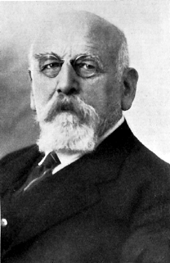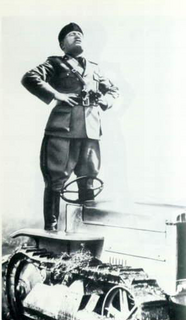This article has an unclear citation style.(June 2018) (Learn how and when to remove this template message) |
The Reich Settlement Law (German: Reichssiedlungsgesetz) is a German law passed by the Weimar National Assembly in July 1919. [1]

German is a West Germanic language that is mainly spoken in Central Europe. It is the most widely spoken and official or co-official language in Germany, Austria, Switzerland, South Tyrol (Italy), the German-speaking Community of Belgium, and Liechtenstein. It is also one of the three official languages of Luxembourg and a co-official language in the Opole Voivodeship in Poland. The languages which are most similar to German are the other members of the West Germanic language branch: Afrikaans, Dutch, English, the Frisian languages, Low German/Low Saxon, Luxembourgish, and Yiddish. There are also strong similarities in vocabulary with Danish, Norwegian and Swedish, although those belong to the North Germanic group. German is the second most widely spoken Germanic language, after English.

The Weimar National Assembly was the constitutional convention and de facto parliament of Germany from 6 February 1919 to 6 June 1920. The assembly drew up the new constitution which was in force from 1919 to 1933, technically remaining in effect even until the end of Nazi rule in 1945. It convened in Weimar, Thuringia and is the reason for this period in German history becoming known as the Weimar Republic.
The law was drafted by government adviser Max Sering. [2] [3] He declared that the purpose of the law was not to "smash up the large estates" but to foster a "healthy mixture" of small, medium and large farms. [4] Under the law reclaimed land and public land were to be provided for farming. [5] More controversially the law also included a clause that ordered that in districts where estates of at least 100 hectares made up more than 10% of farmland, a third of their land should be made available. [6] This was dubbed the "Baltic Third" (baltische Drittel) and originated in the promise made by the Baltic aristocracy in 1915 to give a third of their land to the government for resettlement, with modest compensation. [7] However, the power of the Junkers meant that only approximately a quarter of this land was surrendered to the government. [8] The law did not significantly alter the ownership structure of German agriculture. [9] During the period 1919–1933 57,000 new farmers were settled on just over 600,000 hectares of land. [10]

Max Sering was a German economist. Sering was considered the most famous German agricultural economist of his time; his students briefly included Otto von Habsburg.

The Junkers were members of the landed nobility in Prussia. They owned great estates that were maintained and worked by peasants with few rights. These estates often stood in the countryside outside of major cities or towns. They were an important factor in Prussia and, after 1871, in German military, political and diplomatic leadership. The most famous Junker was Chancellor Otto von Bismarck. Bismark held power in Germany from 1871 to 1890 as Chancellor of the German Empire. He was removed from power by Kaiser Wilhelm II.
According to Alexander Gerschenkron, with the passing of the law "a momentous decision was taken. German democracy rejected the road of agrarian revolution, the road traveled by most of the countries in which the economic power of large estate owners was curbed after the World War. Germany chose the way of gradual reform. Translated into the realistic language of practical politics, this meant that the Junkers had been saved again". [11]
Alexander Gerschenkron was a Ukrainian-born American economic historian and professor at Harvard University, trained in the Austrian School of economics.








